Mike Messier is an award-winning screenwriter, director, and actor. He is the host of the RI cable access program "The Mike Messier Show". Mike hosts "Short Film Showcase", a TV show out of Seekonk, MA that features the best Filmmakers and Actors out of New England, and co-hosts "To the Edge", a roundtable discussion of pop culture and independent cinema. As a screenwriter/director, Mike won three awards for his Wrestling With Sanity- Short Film Trilogy: Imagine News Audience Choice, Ruff Cutz Audience Choice and Image Gazer Best Drama.
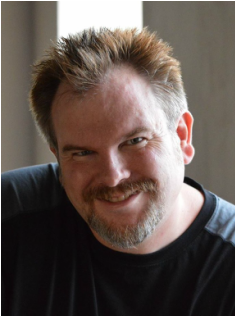 Mike Messier (credit Colleen Smith)
Mike Messier (credit Colleen Smith) I’ve won eight awards in independent film & local TV. I am an Acting Coach of a workshop called Tao Zen Acting. As an Actor, I’ve worked principle with Cybill Shepherd and Wesley Snipes in Hard Luck and had a bit part in Hope Springs in a scene with Meryl Streep. I’ve been writing screenplays for about ten years. In my senior year of high school I took a TV production class. I wrote a script for class called War War III part II and I ended up acting in the movie as well. That script was wild, written pen on paper and we just made photo-copies of it.
Some years later in college, Jorge Lomastro and I produced a real no-budget, eighty minute film titled Man In You – A Providence Love Story. It took us a year and a half to finish the film, but looking back, it was a real great experience, definitely jump in the deep end type of stuff. I was the lead character named ‘Guy Smith’, a man possessed by lust and weakness. We had a great soundtrack for the film, including artists from New York, Los Angeles, and Providence.
This was ‘on the job training’ at its finest, working with personalities, egos, and such. There were no cell phones at the time and things were much, much different. We didn’t even have a full screenplay for the movie, although we did outline the story and scenes quite well, and the movie came out structured and cohesive, all things considered.
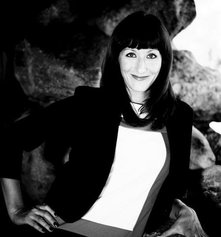 Irina Peligrad in "Wrestling With Sanity" (credit Courtney J. Wilson)
Irina Peligrad in "Wrestling With Sanity" (credit Courtney J. Wilson) About a year later, I wrote a play in college titled Victorious- The Battle for Sanity and I produced it on stage. I wanted to make a film version and I was really struggling with formatting. A friend of mine named Chris Miller told me about Final Draft screenwriting software. Final Draft is a God-send and very user friendly and writer-intuitive. The original Victorious morphed into The Wrestling With Sanity Short Film Trilogy, which eventually won three awards. We tackled that process unusually, writing short films based on the feature length script based on a play. Once the short films were in production, I revised the feature script. Quite a process.
At some point during all of this, I took a screenwriting class at the University of Rhode Island with a screenwriter named Christopher Mensel. It was a great experience and he used Blake Snyder’s screenwriting book Save the Cat as our textbook of sorts. For the class assignment, I wrote a wild script titled Bad Girls with Good Tattoos. I used Blake’s detailed “Beat Sheet’ to outline the script before writing as suggested by Christopher.
What is your pre-writing process?
Each pre-writing experience is a bit different. At times, I collaborate with or write-for-hire for someone who has an original story idea and maybe an outline or treatment but not the actual screenplay. The more details the individual gives me, the closer to their vision I can produce a script. When I’m writing my own original material, these days, I usually just jump in and see what happens. Often, I’ll have a vision of a character or a dialogue exchange in mind to inspire me.
What part of writing a script do you find most difficult?
Page counts can be a challenge as I usually have a first draft around eighty pages. That’s becoming more accepted these days but the more conventional page length is about one hundred pages, depending on genre (dramas are usually a bit longer than comedies etc).
The ending of a screenplay can be challenging for me at times, in term of connecting with a general audience. I like to leave my scripts on a “question mark” not a “period” in a metaphorical sense. I’d rather have the reader, and hopefully the eventual movie audience, wondering what will happen next to the characters and story, rather than a nice happy ending. That may frustrate some readers of my scripts, however, I find the open-ended conclusion exciting… and it leaves the story open for sequels!
Screenwriting is more or less free, once you have the proper software and some education into the process. In other words, it doesn’t cost money to write, whereas it does cost money to produce an actual movie.
Screenwriting is the genesis of cinema and it should not be overlooked or taken for granted.
Screenwriting, at least under ideal circumstances, is where the imagination can run free and wild, without concerns for budget or casting. Once a project gets off the ground, there may be many compromises with directors, producers and actors. At least with the first few drafts of a screenplay, a screenwriter usually has his or her creative integrity and vision unchallenged.
How long does a feature vs. short script take you to complete?
I’ve been able to write a decent short script, three to seven pages, in a few hours. A feature length first draft, I can accomplish in six weeks. I’ll want to chisel that feature script for as long as possible if given my druthers.
Who are your favorite screenwriters? What are your favorite movie or TV scripts?
He’s become a 90s cliché, but I’ll stick with Quentin Tarantino as a favorite screenwriter. The playwright Young Jean Lee is a wild writer and I used some of her odd plays in an Acting class I taught. She has such freedom and humor.
If you got to write the screen adaptation of any book, what would it be?
I read many motivational, spiritual and inspirational books and I would love to translate a few of these into a screenplay. I actually wrote a script based my readings of such books. That script is titled A Search for the Muse.
I’m currently working with author Daniel Simone on his book titled The Lufthansa Heist. It’s quite an intensive story and the characters are really colorful.
What’s next for you? What projects or screenplays are you working on right now?
A Donkey for John is a short film I’ll be shooting in Maine in November. I’m working with Producer/Actor John Orlando and DP/Editor Chris Hunter. We’re calling it “A whole new animal of a comedy.”
Educate yourself with writing classes and by reading books, such as Screenplay – Writing the Picture by Russen and Downs and The Screenwriter’s Problem Solver by Syd Field. There are many, many books on screenwriting and I advise reading as many as possible. Stephen King’s On Writing is especially fun on audio. However, don’t be locked in or restrained by anyone else’s style or opinions. Ultimately, an original voice is fresher than a homogenized craftsman.
Join or start a screenwriter’s feedback group and give each other fair and honest feedback, without being cruel or “overly suggestive”. I’m in a group called “Writers of Wickenden” that meets at Café Zog in Providence, RI. The group members are very supportive and we’ve grown to be pretty tight with time.
In one of the books I’ve read, a screenwriter says that if a writer dedicates four hours to actually write each day, before too long that writer will actually start to be pretty decent. The same writer may want to incorporate regular exercise and walking into the mix and eat healthy food and drink plenty of water.
Get out of the house to write. Find a coffeehouse, library, or park where you can bring your journal and/or laptop. It’s a bit more “human” and interactive than staying at home. If I’m writing at home, it’s usually late at night into the early morning. Having sports talk radio on or music I like is helpful. Burn some incense, light a candle.
My best advice is to have an open mind and heart and allow the muse to enter you, unfiltered. Find your Zen.

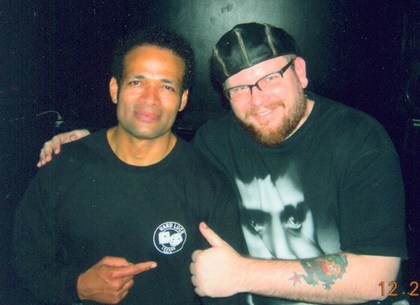
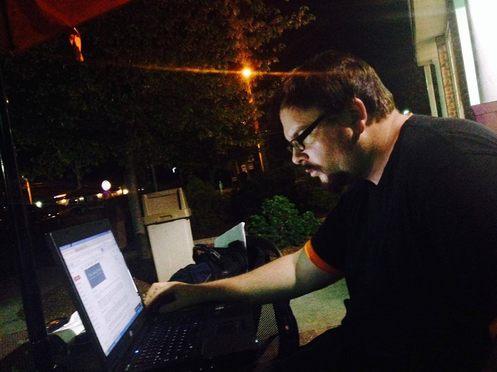
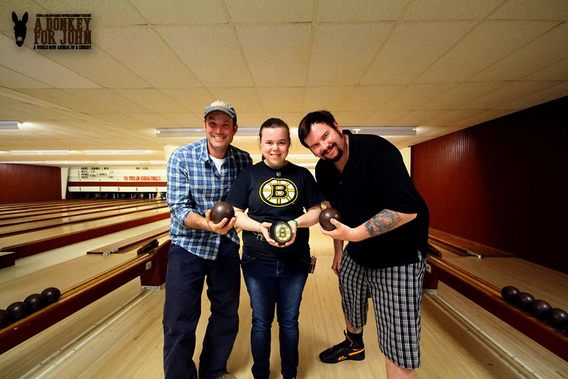
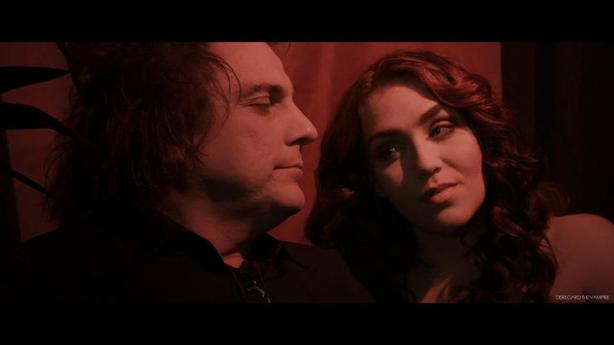
 RSS Feed
RSS Feed
